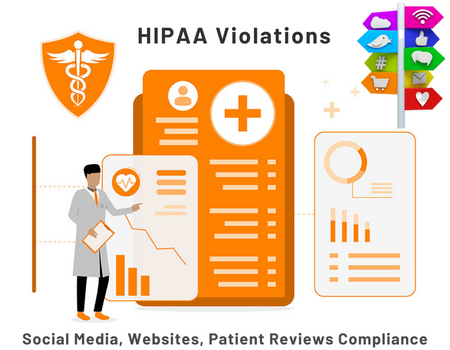Call us: +1-855-202-3299
Email: [email protected]
HIPAA Violations – Social Media, Web Sites, Patient Reviews – Simple Compliance Steps to Avoid Danger
Speaker: Paul R. Hales
Speaker Designation: Health Privacy Attorney

Call us: +1-855-202-3299
Email: [email protected]
Speaker: Paul R. Hales
Speaker Designation: Health Privacy Attorney

The Internet is flooded with highly visible, dangerous HIPAA violations committed unknowingly by health care providers on their websites, their social media like Facebook, and in posting or responding to Patient Reviews about the quality - good or bad - of the health care provider service.
These violations come from important, well-intentioned strategies to stimulate patient engagement, attract new patients, and improve a provider’s reputation in the community. It’s easy to do all of these things - and comply with a few important HIPAA Rules.
Unfortunately, many providers don’t know those rules. And all too often they take advice from vendors who are great marketers but don’t know the HIPAA Rules. Remember it’s the health care provider - not the marketing consultant - who is liable under HIPAA. Following some simple HIPAA compliance steps empowers providers to engage patients effectively on the Internet and avoid risks associated with highly visible, dangerous HIPAA violations.
This webinar explains the HIPAA Safeguards that allow providers to do effective Internet-based marketing and comply with HIPAA.
Healthcare isn't just a profession; it's a dynamic and fiercely competitive industry. Providers, regardless of their scale, rely on strategic marketing to propel their growth and ensure stability. In today's digital age, where the Internet and social media reign as the marketplace of choice, patients actively seek out healthcare providers. Yet, a pressing concern arises as providers often employ online marketing and social media tactics suitable for other sectors like salons or car dealerships. This inadvertently breaches HIPAA regulations, leading to unauthorized patient identification.
A looming threat emerges — medical identity theft, touted as the fastest-growing form of identity theft in the United States. Criminals adept in social engineering require just two pieces of the puzzle: a patient's identity and a provider's identity. In light of this, the HHS OIG raises a cautionary flag, urging vigilance. However, providers possess the power to shield themselves from these risks by adhering to straightforward administrative safeguards meticulously outlined in the HIPAA Privacy Rule.
Join us as we delve into the intricacies of this complex healthcare landscape. Gain insights into the balance between competitiveness and compliance, arming yourself with the knowledge to not only drive organizational growth but also ensure the security of patient information, ultimately safeguarding the integrity of your practice.
Learning Objectives Include:

Paul R. Hales, J.D. is widely recognized for his ability to explain HIPAA Rules clearly in plain language. He is an attorney licensed to practice before the Supreme Court of the United States, a graduate of Columbia University Law School, and a Senior Counselor of the Missouri Bar with an international practice in HIPAA privacy and security. Paul is the author of all content in The HIPAA E- Tool®, an Internet-based, complete HIPAA compliance solution with separate editions for Health Care Providers, Business Associates, Health Plans, and Third third-party administrators.